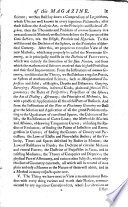 | 1755 - 478 pages
...within his boundlefs uniform Senforium, and thereby " to form and reform the Parts of the Univerfe, than we are by " our Will to move the Parts of our...not to confider the World as the Body of God, or the fe*' veral Parts thereof as the Parts of God. He is an uniform " Being, void of Organs, Members or... | |
 | William Hales - 1800 - 128 pages
...bodies within his boundlefs uniform ftnforium, and thereby to form and reform the parts of the Univerfe, than we are by our will to move the parts of our own...-body of GOD, or the feveral parts thereof as the foul of GOD :" — HE is an UNIFORM BEING, void ' of organs, members or parts ; and They are his creatures^... | |
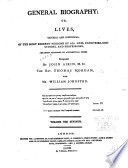 | John Aikin - 1808 - 730 pages
...within hie. boundless uniform sensorium, and thereby to form and reform the parts of the universe, than we are by our will to move the parts of our own bodies. And yet we are not to consider the world as the body of God, or the several parts thereof as the parts of God ; he is an... | |
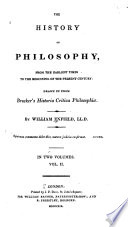 | Johann Jakob Brucker - 1819 - 618 pages
...bodies within his boundless uniform sensorium, and thereby to form and reform the parts of the universe, than we are by our will to move the parts of our own bodies. And yet we are not to consider the world as the body of God, or the several parts -thereof as the parts of God ; he is an... | |
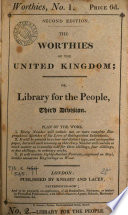 | Library - 1827 - 712 pages
...bodies within his boundless uniform sensorium, and thereby to form and reform the parts of the universe, than we are by our will to move the parts of our own bodies. And yet we are not to consider the world as the body of God, or the several parts thereof as the parts of God ; he is an... | |
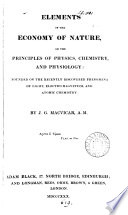 | John Gibson MacVicar - 1830 - 674 pages
...bodies within his boundless uniform sensorium, and thereby to form and reform the parts of the universe, than we are by our will to move the parts of our own bodies. And yet we are not to consider the world as the body of God, or the several parts thereof as the parts of God. He is an uniform... | |
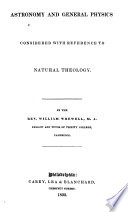 | William Whewell - 1833 - 298 pages
...bodies within his boundless uniform sensorium, and thereby to form and reform the parts of the universe, than we are by our will to move the parts of our own bodies." And in the Scholium at the end of the " Principia," he says, " God is one and the same God always and every... | |
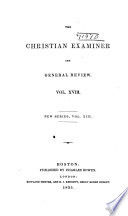 | 1835 - 424 pages
...bodies within his boundless uniform sensorium, and thereby to form and reform the parts of the universe, than we are by our will to move the parts of our own bodies.' And in the Scholium at the end of the ' Principia ' he says, ' God is one and the same God always and everywhere.... | |
 | Francis Jenks, James Walker, Francis William Pitt Greenwood, William Ware - 1835 - 422 pages
...bodies within his boundless uniform sensorium, and thereby to form and reform the parts of the universe, than we are by our will to move the parts of our own bodies.' And in the Scholium at the end of the'Principia' he says, 'God is one and the same God always and everywhere.... | |
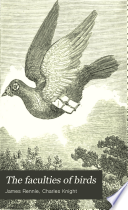 | James Rennie - 1835 - 408 pages
...bodies within his boundless uniform sensorium, and thereby to form and reform the parts of the universe, than we are by our will to move the parts of our own bodies*." Addison has supported a similar opinion with considerable ingenuity. He says that there is not, in... | |
| |